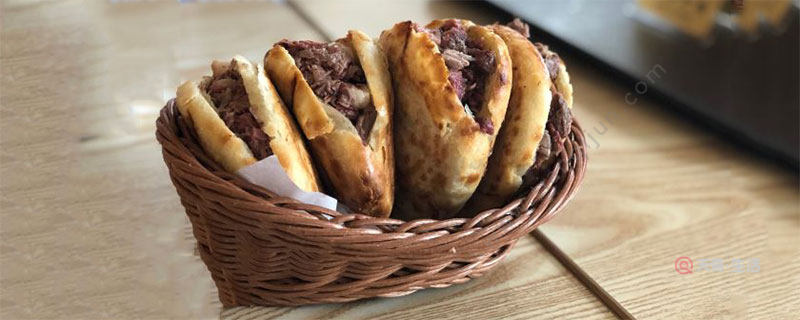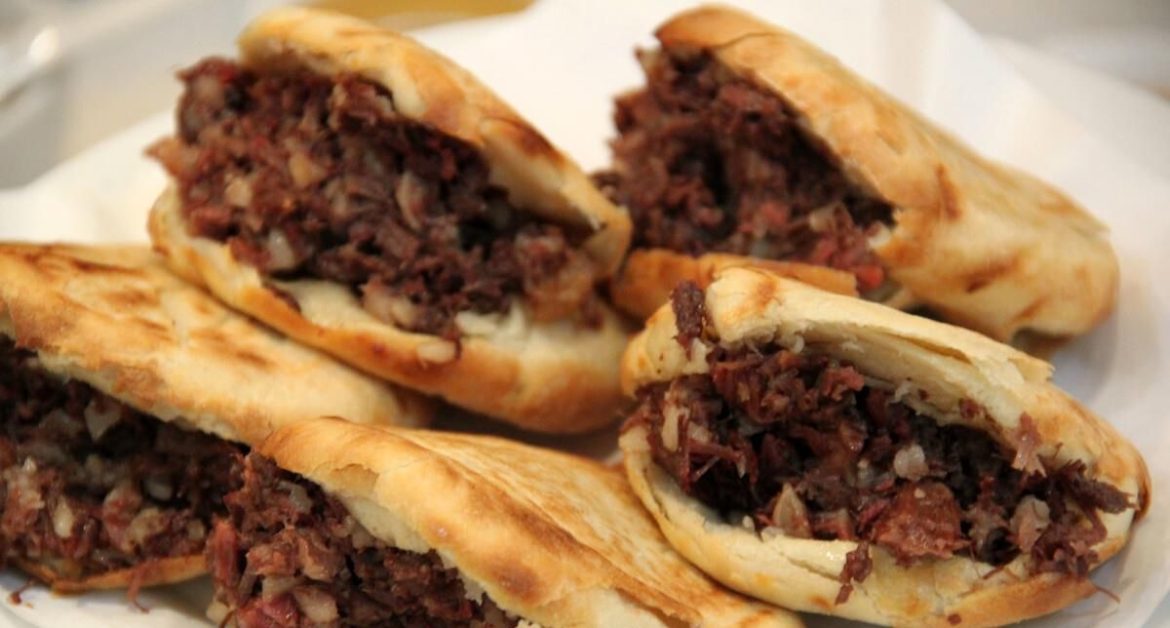In August 2018, the art of making donkey meat fire burns was recognized as a provincial intangible cultural heritage in Hebei. This traditional snack, extremely popular in North China, originated from Baoding and is widely beloved in the plains of central Hebei. The dish features tender, marinated donkey meat paired with old soup juice, nestled within the crispy layers of fire burns.
Origins and Popularity
As a hub of culinary culture in Hebei Province and the birthplace of Hebei cuisine, Baoding has seen its donkey meat fire burns flourish. Thanks to the industrious efforts of the people of Hebei, this dish has become renowned across the nation. In the bustling streets and quiet corners of North China, shops selling donkey meat fire burns are a common sight, seamlessly integrating into the local way of life.
Interestingly, a similar dish can be found in Hejian, although the flavors and preparation differ significantly. The most noticeable difference lies in the shapes: Baoding’s version is round, while Hejian’s is rectangular.

Cultural and Historical Context
Historical records trace the origins of donkey meat fire burns back to Baoding in the second year of the Jianwen Emperor’s reign in the Ming Dynasty (1400 AD). The meticulous process involves boiling the donkey meat over high heat before simmering it gently with almost 20 types of seasonings. The result is thoroughly cooked meat that is tender, flavorful, and with a lingering aroma.
Medical texts highlight the health benefits of donkey meat, citing properties such as blood enrichment, energy replenishment, and overall vitality enhancement. Additionally, donkey-hide gelatin is noted for its nourishing and lung-moistening benefits. Hence, this delicacy is not only delectable but also beneficial for health.
Burgeoning Culinary Fame
In the culinary markets of Beijing, Tianjin, and Hebei, Baoding’s donkey meat fire burns enjoy a stellar reputation. The dish’s roots can be traced back to Caoh river town in Xu Shui County, within Baoding city. Allegedly, during the Song Dynasty, rival gangs – one transporting grain, the other transporting salt – clashed over territory at Caoh river’s pier. The grain-transporting group eventually triumphed, capturing the rival’s cargo mules, which they then cooked and celebrated with, giving birth to the fireside legend of donkey meat fire burns.
During the reign of Emperor Hongwu, the founder of Ming Dynasty, the infighting among his descendants led to soldiers stationed at Xu Shui river’s banks. Out of desperation, soldiers turned to slaughtering their horses for sustenance. Local residents, accustomed to donkey meat, found horse meat equally delectable, thus adding another layer to this culinary tale.

Modern Delight
The Qing Dynasty saw Emperor Kangxi promoting agriculture and forbidding the slaughter of cattle and horses. Consequently, people in Caoh river town shifted to consuming donkey meat, which was more affordable and available. The fire burns, baked to crispy perfection, with tender donkey meat inside, continues to be a local delicacy cherished far and wide.
Rich in iron, beneficial for anemia prevention, and containing much less fat than pork, beef, or lamb, donkey meat is ideal for those who want to indulge in meat while maintaining a lean diet. However, the flavor may be different for those accustomed to other types of meat.
A Culinary Experience
The donkey meat fire burn offers a delightful contrast: crispy on the outside, soft and succulent on the inside. Fresh from the oven, the golden exterior gives way to finely textured meat, making for a rich and savory bite. However, the dish can be oily and may become tough if left to sit too long. The generous serving size means that it may be too much for one person, often leaving some fire burn uneaten after the donkey meat is gone.
Famed comedian Feng Gong often praises donkey meat fire burns in his Baoding dialect films, and renowned crosstalk performer Guo Degang frequently lauds this traditional snack in his work. Their humorous endorsements have brought broader recognition and affection to this storied dish.

